-Jessica Oosthuyse
It takes a special kind of person to be a conservationist. Unlike legal, financial or medical career paths, ecology and conservation jobs do not attract people through their promise of financial security and stability. Instead, they are rooted by passion, intrigue, a sense of adventure, and most importantly, an unconditional love for nature and the preservation thereof.
Not only does the Welgevonden management team embody these qualities through their day to day activities on the Reserve, they take it beyond the work place. This year, a total of 7 staff members have signed up to push their bodies to the limit by running the arduous Marakele Marathon on World Wildlife Day– and they are doing it to support conservation foundations independent of their own.
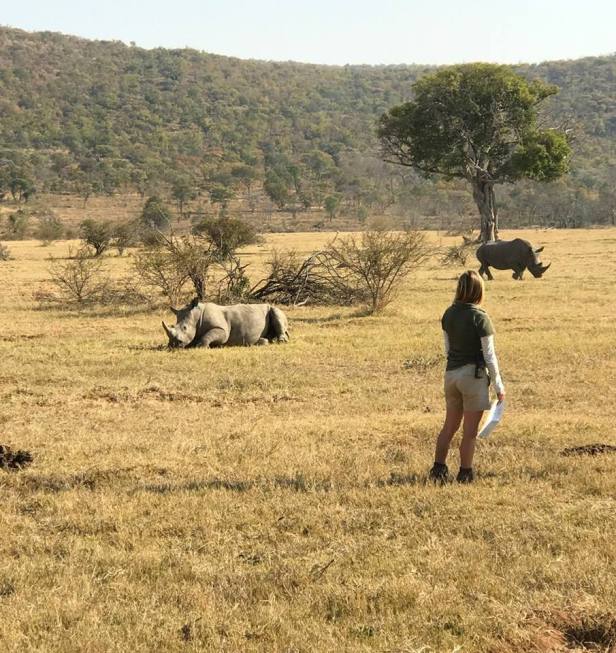
Unlike corporate companies, conservation programs are, on average, non-profit, and rely heavily on sponsors and donations in order to carry out successful ecological research, monitoring, management, security and rehabilitation activities. Convincing the general public to donate their hard earned money towards conservation efforts is not always easy. As a result, it is up to a few educated individuals with a passion to preserve, to think up effective ways of raising public awareness and to inspire others to contribute towards the conservation of endangered species.
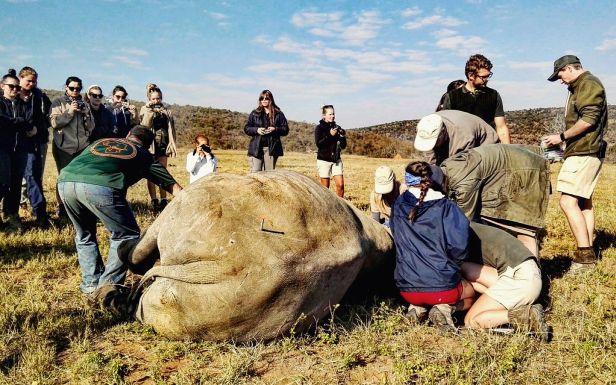
Rhino poaching is a key conservation topic in South Africa, which is home to 80% of the world’s estimated 29 000 remaining rhinos. Since 2007, the number of rhino poached per annum has increased from 13 to a staggering 1 028. This increase correlates with the high demand for rhino horn in Asian countries where it is wrongly believed to have medicinal properties capable of curing a range of serious ailments. In reality, rhino horn consists of nothing more than keratin, the same material that makes up human hair and fingernails, and is proven to have no known medical or neurological effect on humans.
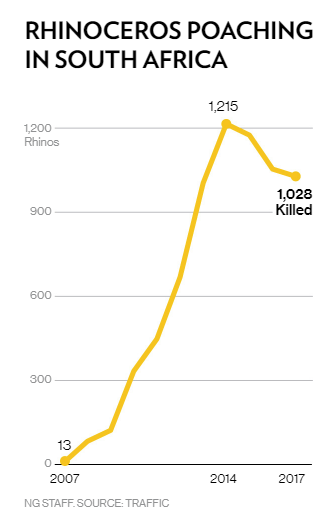
The urgency to save this iconic, key-stone species has prompted the development of numerous charities and campaigns with the sole purpose of “Saving the Rhino”. A few members of our team, including the Running Rhino and Reserve CEO, Bradley Schroder, will be running to support Save the Rhino International, a foundation that supports a number of ongoing rhino conservation programmes, including Welgevonden. To support our rhino runners, please click here.
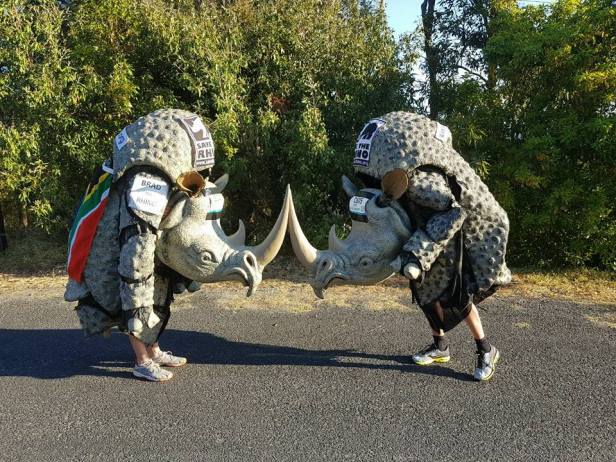
Rhinos are not the only species in South Africa being poached at a rate that cannot sustain population growth. Vultures are fantastic garbage disposers and maintain ecosystem health by efficiently locating and consuming carcasses in the veld. These birds are being poached at an alarming scale for the “muthi-market” as it is believed that certain parts of their bodies carry magical properties. Not only that, but vultures are also killed by poachers who do not want the vultures to alarm officials to the location of carcasses such as rhino or elephant. In fact, the 7 vulture species indigenous to South Africa are all either endangered or critically endangered.
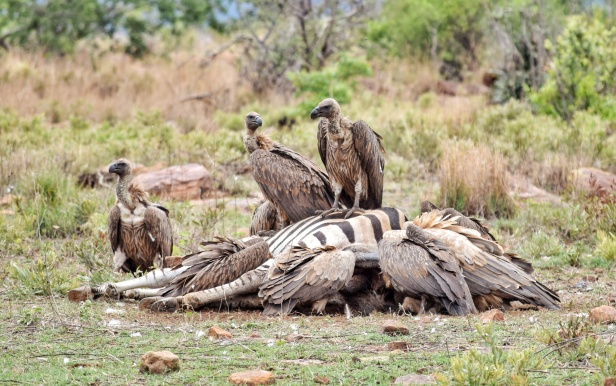
A portion of the marathon team will be running to raise awareness around vulture conservation. With the second largest colony of cape vultures living on the peaks of the Kranskop Mountain range in Marakele National Park, this cause seemed only apt for the occasion. The team hopes to raise a minimum of R8 000 to donate to the vulture conservation and rehabilitation programme, Vulpro. You can help support vulture conservation by clicking here.
The Marakele marathon is the first of many in a long race to save the lives of these fast disappearing species, and a number of the avid Welgevonden runners will continue to enter half- and full marathons as the year progresses including the London Marathon and the Comrades Ultra Marathon.
While marathon running may not be everyone’s cup of tea, there are a multitude of ways you can show your support for conservation on World Wildlife Day this March.
Check out the official World Wildlife Day website for environmental events near you and let us know what YOU’LL be doing to support wildlife!

